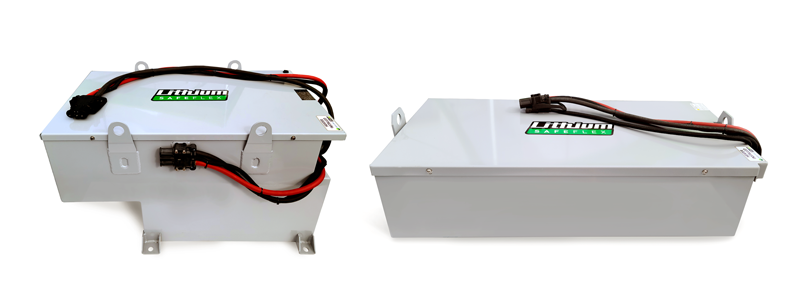Visit Green Cubes at HIMSS Global Health Conference & Exhibition 2026, Las Vegas, NV March 9-12,
For nearly two decades, I have focused on battery technology and the battery industry. I have a PhD from The University of Texas at Austin, where I studied with John Goodenough, who won the Nobel Prize for inventing the Lithium-ion (Li-ion) battery. When I was in graduate school, in the late 90 and early 2000s, Li-ion batteries were not yet used commercially; laptop computers were powered by NiMH batteries and NiCd powered tools, camcorders and remote-control cars. GM had a robust research program on electric vehicles, which was ultimately canceled in 2002 because of poor market acceptance. No one knew which technology would power the emerging consumer electronics market- most thought NiMH batteries would stay as the default and big companies invested in everything from fuel cells to MEMs fly-wheels.
The Beginning of the Li-ion Battery Industry
Then, a number of key innovations resolved some of the safety concerns about Li-ion batteries, SONY commercialized the first Li-ion cells and the die was cast. Nearly all laptops were powered by Li-ion batteries within just a few years, and Li-ion batteries enabled cell phones which came on the market a bit later. The sheer volume of these two applications, enabled the market Li-ion battery market itself to mature, so that now nearly everything that needs portable or back-up power uses Li-ion. The only exception to this adoption is long term legacy lead acid stationary back up power and heavy equipment motive applications, like material handling and ground support equipment. Lead acid still has a lower up front cost and these applications don’t really benefit from the size and weight advantages of Li-ion batteries.

What will Happen Next in the Li-ion Battery Industry?
As motive applications like material handling and ground support equipment become the last hold outs for an older technology with a decidedly poorer environmental profile, I believe that we will see total costs for lead acid batteries increase. The infrastructure that is built up around the lead acid market (recycling, etc.) will shift to support the Li-ion battery industry. Li-ion batteries will have more suppliers and more diverse product offerings, more competition and more supply chain redundancy. Adjacent technology for Li-ion will improve and manufacturing methods will gain efficiencies. The US government is already beginning to invest heavily in strategic, domestic Li-ion manufacturing. When the governments of leading countries can start to ban and regulate Lead Acid, they will. In fact, RoHS and other regulations have specific call-outs for lead in batteries just because there has not been a viable alternative, until now. China has already begun to take drastic steps to completely ban lead acid battery manufacturing. Lead acid manufacturing will likely be only in far-away places with inexpensive labor and poor environmental regulations and high shipping and import costs. In the industry, there is no more debate about if Li-ion batteries will overtake Lead acid, the question is more when and how. The volume of Li-ion batteries being produced will be an advantage to the material handling and ground support industries long term, rather than a risk.

Will a New Technology Replace Li-ion Batteries?
The conversion of the entire industry from lead acid to Li-ion will be long, so you may wonder if there will be another, new technology that will leapfrog it, and my prediction is that there will not. Inventions in this science are very slow and tend to be incremental; it has taken China 25 years to get its mature Li-ion battery industry. If there were something coming up behind Li-ion batteries, it would already be far into development. I do believe that fuel cells will be a key part of the new zero carbon fleets, but they will replace ICE primarily and co-exist with Li-ion battery powered trucks. Because hydrogen infrastructure requirements are similar to gas and oil, it will likely be ten years before this technology is commonly available. In summary, Li-ion battery technology is going to be the de-facto standard in material handling and ground support equipment in the near future.
DISCLAIMER Please note that everything posted on this site is up to date at the time of posting. Things change and products may be discontinued at any time. Please contact us for the most up to date information.
